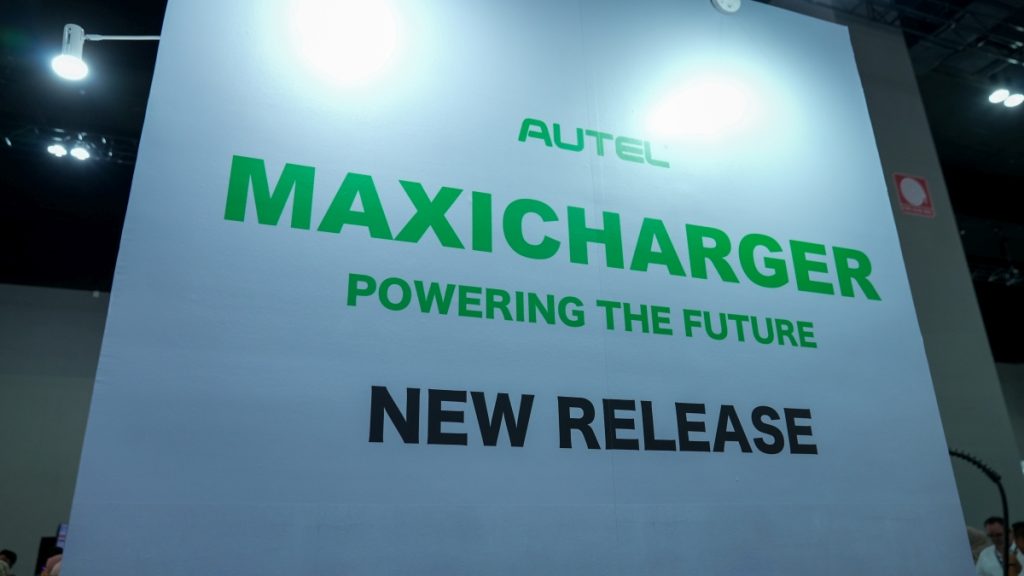The vaping community has always been vibrant, with users consistently seeking knowledge to enhance their experiences. One issue that pops up frequently among vapers is “Why is my vape leaking into my mouth?”.
From the choice of e-liquid to maintenance practices, several factors can influence the performance of your vape device. If you’re a retailer or just an enthusiast, understanding these issues will be beneficial.
This comprehensive guide, curated with insights from leading vape distributor, delves into the intricacies of this common issue, offering solutions and insights.
The Phenomenon of Vape Leakage
Ever had that moment where you’re looking forward to a relaxing vape session, only to get a surprise taste test of your e-liquid? Yeah, not the flavor burst we were hoping for! When e-liquid decides to throw a mini pool party in your mouth instead of turning into that smooth vapor, it’s not just a buzzkill.
Beyond the “eww” factor, it can be a health no-no if you gulp down too much. And let’s not even get started on how that mischievous leak is plotting against your device and making your prized juice vanish into thin air.
Before we set up a detective board to pinpoint this sneaky culprit, let’s dive into the root causes of this slippery issue. Ready to play some vape detective?
Unmasking the Leaky Culprits:
Alright, folks, gather ’round! Imagine your vape is like that intricate plumbing system in your home. You expect water to flow seamlessly, right? But every so often, there’s that annoying drip you can’t place, and suddenly, you’ve got a mini indoor pool you didn’t ask for. vape systems, while much less complex, operate on a similar principle. Ever had one of those days where nothing’s going right and then, out of nowhere, you get a mouthful of e-juice? Let’s dive into what might be causing that unexpected surprise.
- Faulty Seals or Damaged O-rings: Ever overlooked those tiny seals or O-rings in your vape? While they might seem trivial, if they’re worn out or damaged, they can be the silent troublemakers, much like a weak link in a sturdy chain. Ensure they’re properly placed, undamaged, and snugly fit.
- Overfilling the Tank: Just like how our eyes can be bigger than our stomachs during a buffet, sometimes we can overestimate how much juice our vape can handle. Leave a small space to allow the pressure to equalize.
- Improper Inhalation: Believe it or not, how you puff matters! If you’re inhaling too aggressively, you might be drawing too much liquid into the coil, leading to leakage. Gentle and consistent puffs are the way to go.
- Temperature Fluctuations: Leaving your vape in direct sunlight or cold environments can cause the liquid to thin out or the components to contract, making way for leaks.
- Mismatched Components: Not all vape parts play nice with each other. It’s always wise to ensure your vape parts fit together perfectly. And if you’re unsure? Stick to the manufacturer’s advice – they know best
- Infrequent Use: Leaks are an inconvenience, but understanding the reason behind them is half the battle. The next steps are all about proactive care. Regularly cleaning your vape device, replacing any worn-out parts, and being mindful of how you use and store it can make a world of difference. By treating your vape with the respect it deserves
you can ensure that every puff is a delightful experience, free of any unscheduled e-liquid tastings. Let’s make the most of our vaping experience and leave those leaky sessions behind!
Why Addressing Vape Leakage is Crucial ?
Imagine sipping your morning coffee and suddenly getting a splash of it on your brand new white shirt. Annoying, right? Now think of vape leaks as that unexpected coffee splash but with added layers.
Not only is it messy and a waste, but there are also some sneaky reasons why you should tackle this issue head-on.
Let’s dive into the nitty-gritty of why addressing that rebellious vape leakage is more than just saving a few drops of your favorite e-liquid. Ready? Here we go!
- Safety: for sure, safety should always be a priority. Using e-liquids, especially those with nicotine, isn’t like enjoying a sip of your favorite drink. It’s vital to ensure your vape is on point, making sure that liquid turns into vapor without any unexpected drips or surprises.
- Cost Efficiency: Leaky vapes equate to spilled e-liquid. This wastage can quickly add up, leading to more frequent purchases.
- Improved Experience: A leak-free vape ensures a seamless and enjoyable vaping experience. Addressing this issue means fewer interruptions and a more satisfying vape.
- Hygiene: Consistent leaks can lead to sticky residues, attracting dust and dirt. This can be unsanitary and might even affect the taste of your vapor.
- Preservation of Flavor: Continuous leakage can lead to air getting into the tank, which might oxidize the e-liquid. This can alter the flavor of your vape juice, diminishing its original taste.
- Environmental Impact: Regularly discarded e-liquid can be harmful to the environment. By preventing leaks, you’re also playing a part in reducing unnecessary waste.
- Resale Value: If you ever decide to upgrade or sell your device, a well-maintained, leak-free vape will fetch a better price compared to one that’s been consistently leaky.
Remember, addressing vape leakage isn’t just about the immediate inconvenience. It’s a long-term investment in your vaping journey, ensuring safety, enjoyment, and cost-effectiveness.

Decoding the Reasons Behind Vape Leakage
Every vape device, despite its design or cost, operates based on a straightforward principle. However, multiple components need to harmonize to deliver that perfect puff. Here are the comprehensive reasons your vape might be leaking:
- Incorrect Filling Techniques: One of the most common causes of leakage is overfilling or not sealing the tank correctly. Always check the recommended fill level and ensure your tank’s seal is tight and intact.
- Compromised Coils: Coils play a critical role in vaporizing the e-liquid. Worn-out or burnt coils might not function optimally, leading to excessive e-liquid and leaks.
- Wrong PG/VG Ratio: The e-liquid’s consistency, determined by its propylene glycol (PG) to vegetable glycerin (VG) ratio, can influence leakage. Thinner liquids (high PG) might not be suitable for all devices.
- Inappropriate Inhalation Technique: Drawing too forcefully can flood the coil, causing leaks. Gentle and consistent drags are recommended.
- Device Design Flaws: Not all vapes are created equal. Some designs might be more prone to leaks due to their construction.
- Temperature Fluctuations: Vapes left in hot environments can cause the e-liquid to thin out, leading to potential leaks. Always store your device in a cool, stable environment
Crafting the Right Vape Experience: Minimizing Leakage
Choosing a vape goes beyond just picking a device off the shelf; it’s about shaping an experience tailored to you.
From the flavor profiles to the very feel of the device in your hand, every aspect matters. Here’s your guide to curating the perfect vape journey:
- Quality Devices: Invest in devices renowned for their build quality and leakage resistance. Research and user reviews can be invaluable here.
- Regular Maintenance: Just like any device, vapes need regular upkeep. Clean the tank, replace coils when necessary, and check for worn-out parts.
- Expert Guidance: Join vaping communities, visit local vape shops, and seek advice when unsure. The vaping community is vast and usually willing to help.
- E-Liquid Storage: Storing e-liquids correctly is crucial for several reasons , E-liquids are a delicate blend of flavors, and just as with gourmet foods or fine beverages, proper storage can help maintain the intended taste profile. Exposure to light and heat can cause these flavors to break down, leading to a muted or altered taste.
The industry of vaping is as intricate as it is fascinating, offering a spectrum of experiences for both the novice and the aficionado. However, just as with any sophisticated gadget or device, understanding its nuances can make the difference between mere satisfaction and true delight.
Leakage in vapes, while a common issue, is often a culmination of various factors ranging from maintenance lapses to mere human error. But the ripple effect of this seemingly minor inconvenience can stretch beyond just a momentary hiccup. From health concerns to financial implications, the stakes are higher than one might initially perceive.
So, whether you’re a retailer hoping to guide your customers or a curious enthusiast looking to optimize your vaping journey, knowledge is your most potent tool. Embrace it, share it, and vape on with confidence!
FAQs
Q1:Why is my brand-new vape leaking?
Even new devices can leak if not set up correctly. Ensure that all components are tightly secured, and the tank isn’t overfilled. Sometimes, factory defects can also be a cause.
Q2:Can I use different brands of e-liquids with my vape?
Yes, you can, but ensure the PG/VG ratio is compatible with your device to prevent leakage.
Q3:How often should I replace my vape’s O-rings?
Regular inspection is key. Replace them if you notice any signs of wear, damage, or if you experience consistent leakage.
Q4:Is there a “best” inhalation technique to prevent leakage?
Opt for gentle and consistent drags. Forceful inhalation can flood the coil, which might cause leaks.
Q5:Can extreme temperatures really cause my vape to leak?
Yes, extreme temperatures can affect the consistency of the e-liquid and the device’s components, leading to potential leaks. It’s best to store your vape in a stable environment.







